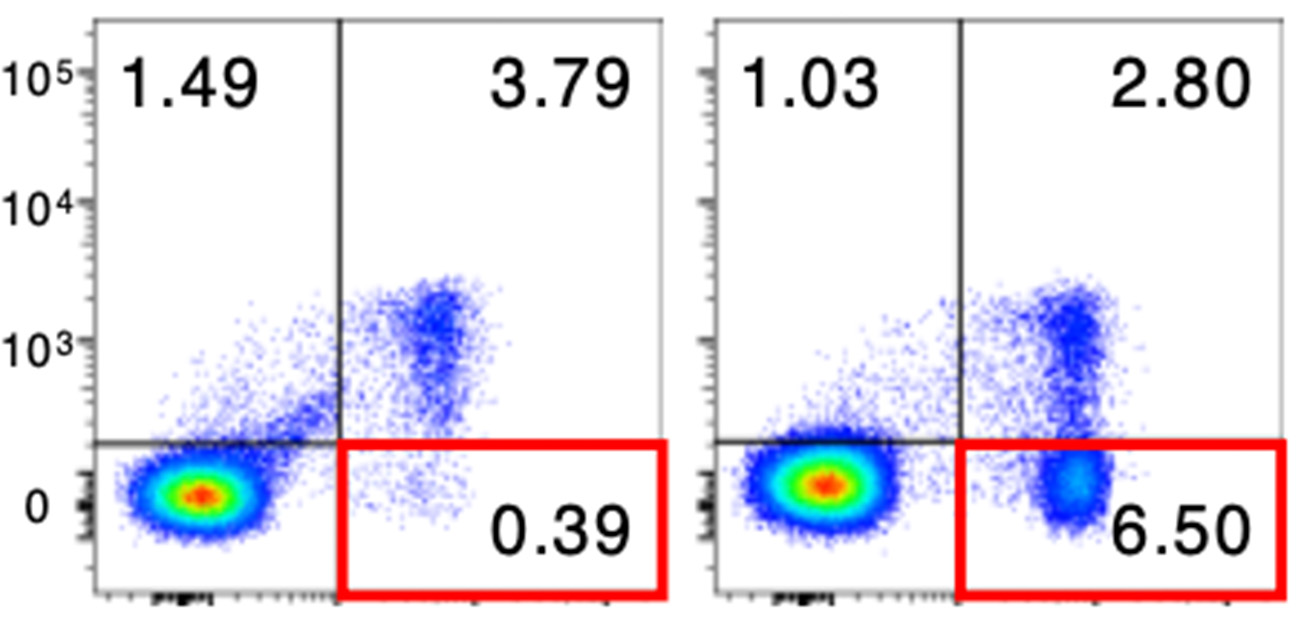
Ikaros–Foxp3 binding mediates target gene repression in Tregs
Researchers from Osaka University find that the transcription factor Ikaros binds to Foxp3 to inhibit the expression of target genes, including Ifng, in regulatory T cells
The immune system is tightly regulated to ensure that it only responds to actual health threats, instead of attacking our own bodies, which happens in cases of autoimmunity. Now, researchers from Japan report a new protein–protein interaction that could account for some autoimmune conditions and suggest new avenues for treatment.
In a study published this month in Immunity, researchers from Osaka University have revealed that binding between two transcription factors is required for certain immune cells to behave appropriately.
T regulatory cells, or Tregs, help keep the immune system from kicking in at inappropriate times and causing autoimmune disorders or other negative effects. Treg function is mainly controlled by a protein called Foxp3 that activates the expression of some genes and represses the expression of others.
“Previous studies have shown that the transcription factor Ikaros (encoded by Ikzf1) interacts with Foxp3, and that mutations in Ikzf1 also cause immunodeficiency and autoimmune diseases, similar to those seen with Treg dysfunction” says lead author of the study Kenji Ichiyama. “However, it was unclear how Foxp3 and Ikaros interact to affect gene transcription and alter the behavior of Tregs.”
To address this, the researchers first identified the region of Ikaros that is required for binding to Foxp3. They then deleted this region and expressed the deletion mutant in the Tregs of live mice.
“The results were striking,” explains Shimon Sakaguchi, senior author. “Treg-specific deletion of IkE5, the region responsible for Ikaros binding to Foxp3, induced Tregs to overproduce the pro-inflammatory factor IFN-γ, creating functional instability that led mice to develop severe autoimmune disease and ultimately die within two months.
”Similarly, when the researchers treated human Tregs with pomalidomide, a thalidomide derivative that degrades Ikaros, the function of the cells was disrupted, and they produced large amounts of IFN-γ.
“Taken together, our findings suggest that Ikaros binding to Foxp3 is essential for Foxp3-mediated repression of gene expression,” says Ichiyama.
Given that Treg dysfunction is a key feature of many autoimmune diseases and cancers, the findings from this study suggest that targeting the interaction between Foxp3 and Ikaros could be a useful treatment option for these conditions. The study findings could also provide insight into certain Ikzf1 mutations some people are born with that can cause lethal autoimmunity.
The article, “Transcription factor Ikzf1 associates with Foxp3 to repress gene expression in Treg cells and limit autoimmunity and anti-tumor immunity,” was published in Immunity at DOI: https://doi.org/10.1016/j.immuni.2024.07.010.
